Young women share their messages for the UN
14 July 2022A group of 14 girls and young women from around the world worked together to do joint advocacy at the 50th session of the UN Human Rights Council this June. These brilliant and passionate young woman brought their expertise as advocates for human rights and gender equality to the discussions, and made their voices and key messages heard across the debates.
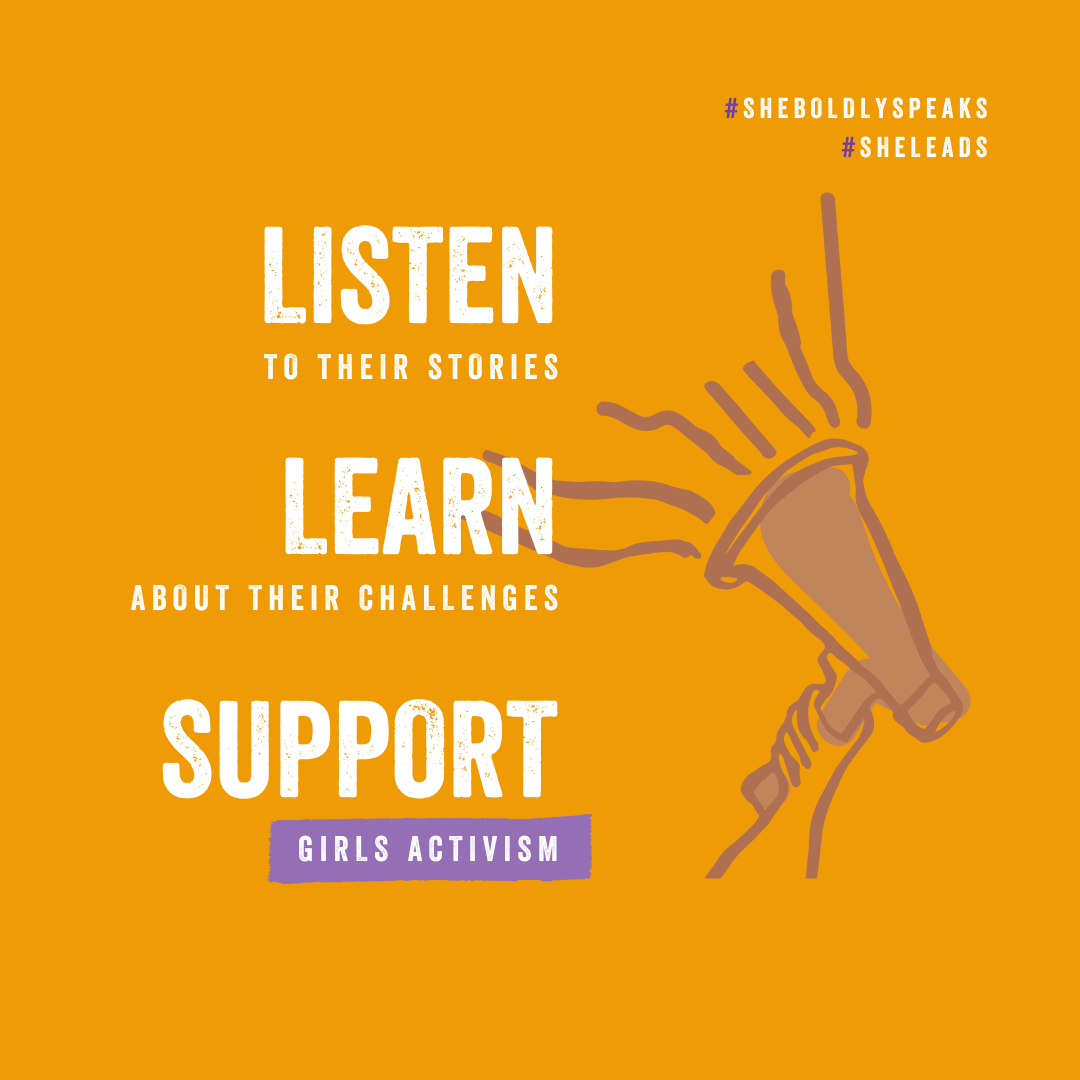
A group of 14 youth advocates from around the world, supported by Plan International and the She Leads programme (Defence for Children International and Terre des hommes), worked together to do joint advocacy at the 50th session of the UN Human Rights Council this June. These brilliant and passionate young women brought their expertise as advocates for human rights and gender equality to the discussions, and made their voices and key messages heard across the debates. Among other things, these girls and young women:
- Had private meetings with UN experts and Member States to share their experiences and recommendations.
- Organized a public side event – designed and led entirely by them – on the topic of girls’ activism.
- Drafted an advocacy brief specifically geared towards influencing the resolution on discrimination against women and girls, which this year focused on the topic of girls’ and young women’s activism.
- Delivered three oral statements during the Council session, on the topics of girls’ and young women’s activism, menstrual hygiene management, and unpaid care work.
Here is an interview with 5 of them, sharing their experiences and messages for the UN.
Meet Esther, Victorlyn, Francess, Nancy and Racheal!
Question 1: Tell us a little bit about yourself (where you’re from and what your advocacy focuses on).
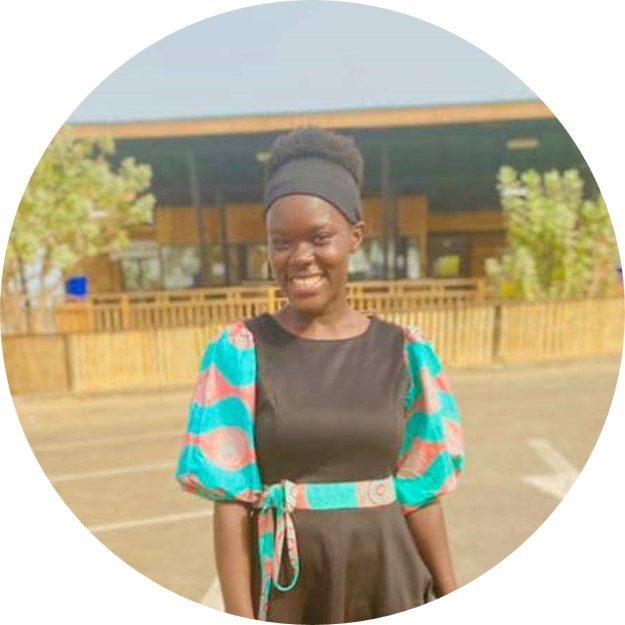
Esther, 24 years old, Sierra Leone
I am Esther from Sierra Leone, a student, feminist, activist, and a writer. I advocate to see that women and girls have adequate access to decisions and information that concern them, and for them to be included in decision making. I believe that if women and girls know and have rights to every aspect of life, they will be able to bring sustainable development in our world.
Victorlyn, 21 years old, Liberia
I am Victorlyn from Liberia, a youth and women human rights defender / advocate. My advocacy work focuses on promoting gender equality and youth empowerment. I work currently with a youth-led organisation called ‘The Initiative for Youth Empowerment and Economics Development’ (IYEED Inc.), which helps girls and women identify who they are, their worth, potential, and rights as a human, through programmes, civic engagement, community awareness, outreach and media engagements. I am also a volunteer worker of several youth-led organisations in my country, working with adolescent girls in achieving Goal Five (5) of the Sustainable Development Goals.
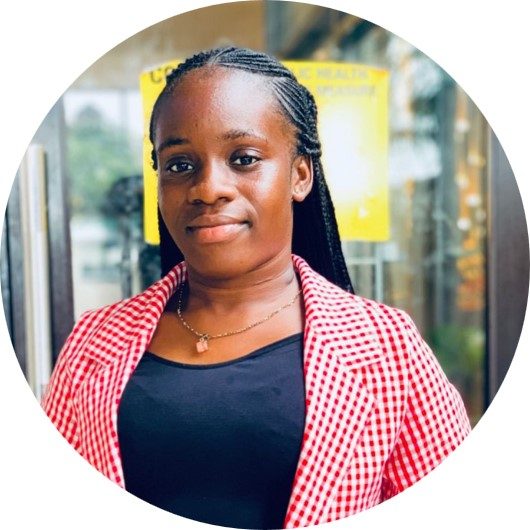
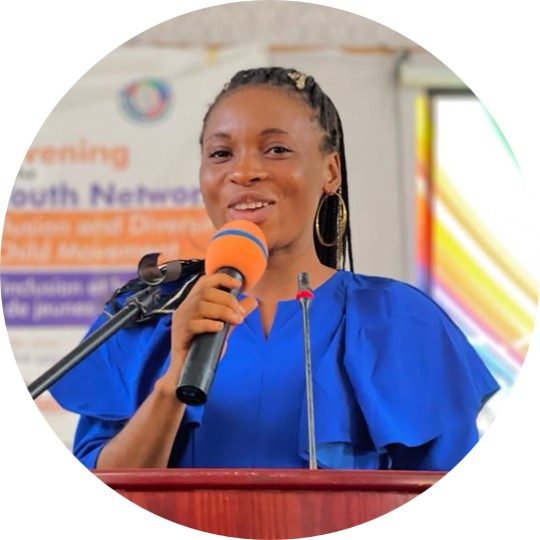
Francess, 19 years old, Sierra Leone
I am Francess, I am from Sierra Leone and I am a young girl and an advocate for young girls’ and women rights. Dedicated to the promotion of gender equality and the empowerment of girls, I work with a youth-led organisation called Violence Against Children (VAC) whose mission is to support and empower children, young girls and women as human rights holders. I have also worked with the Children Forum Network and with different organisations in my country, including Defence for Children International (DCI), for young girls and women to have equal rights and have sustainable development.
Nancy, Kenya
I am Nancy, a young grassroots feminist. I was born, raised and live in Kibra, the largest informal settlement in Africa. I am a sexual and reproductive health and rights advocate and influencer, a comprehensive sexuality education facilitator and a human rights activist and defender. I am also passionate about ensuring that girls and young women in all their diversities are meaningfully, deliberately and actively involved in decision-making spaces and processes, especially regarding decisions made for them. I seek to always create spaces for other girls and young women and make sure that their voices are amplified.
I am currently a volunteer at the Zamara Foundation and Polycom Development Project where I mentor girls and young women on menstrual hygiene and offer comprehensive sexuality education and ensure that the sexual and reproductive rights of girls are upheld and dignified. Together with other young women, I am actively involved in influencing and shaping policies that are designed for girls and young women, including the National Reproductive Sexual Health policy, the Reproductive Health bill and the East African Community Sexual Reproductive health bill 2021. Through our work, we recommend issues we see as priority to us and advocate for its full implementation.
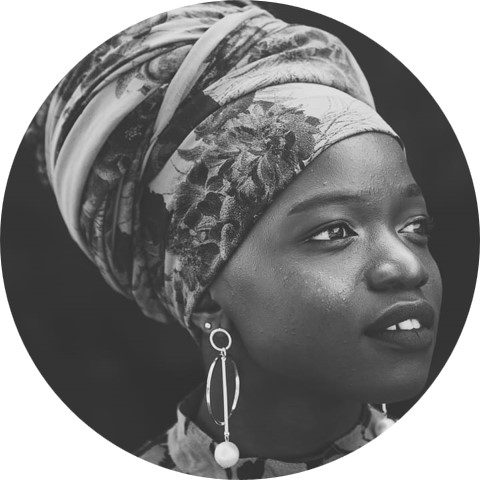
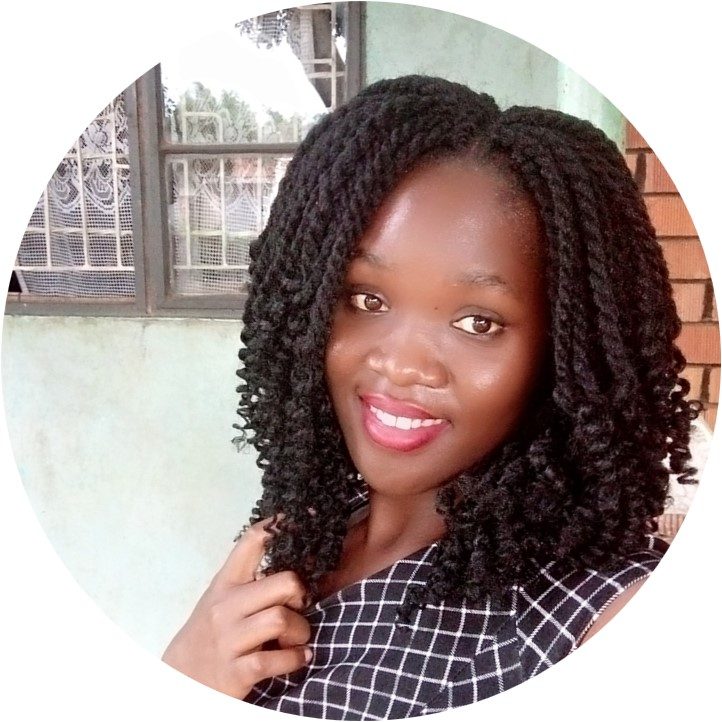
Racheal, 23 years old, Uganda
My name is Racheal from Integrated Disabled Women Activities (IDIWA) and am from the Eastern region of Uganda. I have a physical disability and I am passionate about issues linked with girls and young women but, more importantly, issues of girls and young women with disabilities like me. This makes me a powerful and passionate advocate for the rights of girls and young women with disabilities. Being part of disability advocacy has shaped me into being the best version of myself that I am today. It’s given me grounds to claim my rights and the rights of my fellow girls and young women with disabilities and it’s given me confidence, self-esteem and the zeal to keep the” fight” for an inclusive society. I now have a voice and am proud to say that I’ve been doing advocacy since way back in 2009 when I advocated for accessible classrooms and dining halls for girls and young women with disabilities and 3 provisional ramps were put in place. I “walked the same talk” in my secondary and university, and my main objective in this advocacy is to see a changed society in all spheres of life – that’s to say change in attitudes, sexual reproductive health rights, decision making processes, inclusive education for girls and young women with disabilities. I want to see girls and young women with disabilities on top.
Question 2: What are your top recommendations for decision-makers when it comes to girls’ and young women’s participation in decision-making?
Esther:
- Governments and other agencies should ensure that girls and young women are included in policy formation and decision-making (anything that does not include us is not for us).
- Laws and documents that are already in existence, like reports regarding the activities of young women activists, should be circulated far and wide, and they should be accessible by all.
- Policies and laws should not only be passed, governments and other agencies should ensure that these laws are implemented sustainably.
- Platforms, forums and avenues should be formed, where girls and young women activists can voice their challenges and experience with no fear of repercussion.
Victorlyn:
- Societies, governments and agencies should be gender-sensitive, not discriminatory, involving girls and young women to sit at the table to discuss and make decisions that concern them.
- Girls and young women in all sectors should be given the same opportunities and privileges as their male counterparts.
Francess:
- Societies and governments should give women and young girls a safe space in decision-making. Not only 30% but let’s say 85% because much of the population in our countries are women and young girls.
Nancy:
- Girls and young women should be partners in building their own communities and defining their agendas. We are experts in our own rights and challenges, and know the solutions and adaptations to our challenges.
- You cannot make decisions for us without us. Be intentional in meaningfully involving women and girls in decision-making processes and spaces by breaking down complex and technical information into simple, understandable form so as to ensure the girls and young women are aware of what is being discussed and can participate meaningfully.
- Decision makers should also facilitate girls and young women to be able to access these spaces and properly prepare them so they are ready and competent to take on discussions. Just telling us that there’s a meeting isn’t enough. Make sure we know the venue and are able to get there early enough to meaningfully engage in the process.
Racheal:
- Government and other implementing partners should involve girls and young women with disabilities in policy development through assessment by policy makers so as to set priorities in responding to cultural, economic, social and political issues of girls and young women with disabilities.
- They should also ensure accessible sexual and reproductive health services to girls and young women with disabilities by facilitating menstrual hygiene and health, prevention of unwanted pregnancies, providing accessible labour wards and beds, fighting negative hostile attitudes among service providers.
- Governments and other implementing partners should ensure criminalisation of promoters of harsh cultural practices like forced marriages, forced permanent contraception that deny girls and young women with disabilities their right to parenthood.
- Governments should sensitize communities about the rights of girls and young women with disabilities and educate girls and young women with disabilities about their rights and put in place awareness trainings.
- Governments should add on resource envelopes/financial aid to disability committees from grassroots to national level.
- Government and other agencies should organize capacity building for girls and young women with disabilities and consider more political slots/representation of girls and young women with disabilities.
- Government should ensure inclusive education for girls and young women with disabilities by providing sign language interpreters, accessible education structures, physically accessible buildings /classrooms.
Question 3: What advice would you give to other youth advocates engaging in UN processes?
Esther:
Be yourself and be fearless. Tell your story and enjoy the process.
Victorlyn:
Don’t overlook yourself and what you do, your story could be an inspiration to someone who just wants to be inspired. See every challenge as a source of strength because the next generation is our children.
Francess:
Be the voice that could speak for girls and young women. Inspire other girls to take the lead. She too can do it, she leads.
Challenges can come, but be strong and be bold because you can save the next generation.
Nancy:
You will never walk alone. The struggle gets tough but you must keep going, remember why we took this cause. We speak for girls and young women in our communities. We are the voices of the voiceless. We are unstoppable now more than ever because we have realised the power of our stories and voices. We are powerful and are going to create a just future for girls and young women in our communities. This is why we have to keep going. We are not stopping for anything.
Racheal:
- Our voices matter. Every voice matters. Don’t be afraid to shine your light.
- Speak boldly and courageously about matters affecting girls and young women with disabilities.
- Be passionate about girls and young women with disabilities advocacy because it’s a calling and lifelong mission.
- Find possible ways of getting your perspectives at decision-making tables.
- Build a community of support, teamwork. No one wins on their own. TOGETHER WE CAN.
Categories: Youth empowerment


